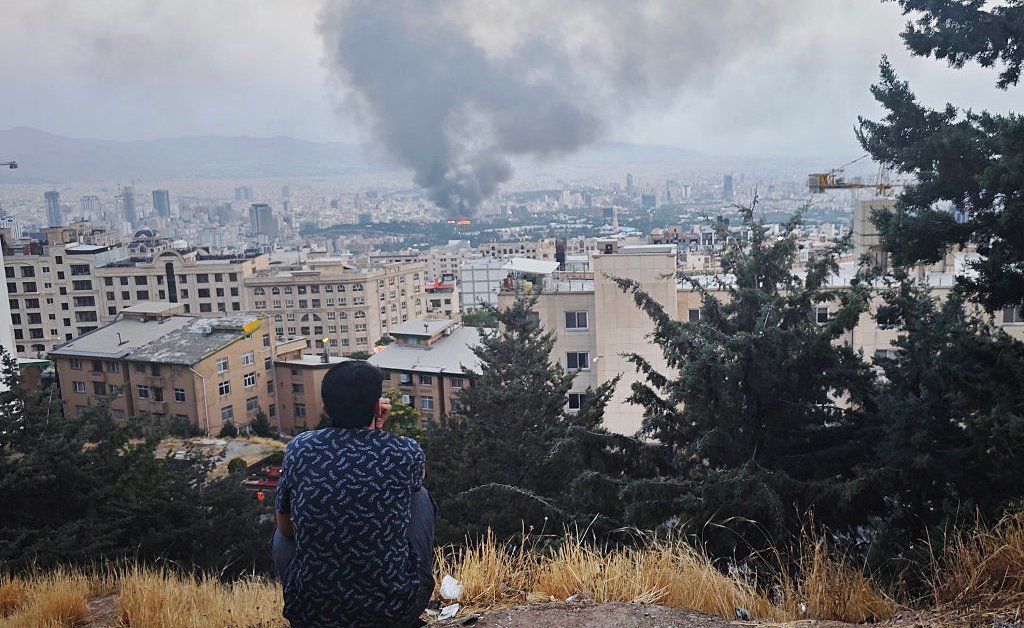“Do you think I’ll get to see Iran again?”
The question hangs in the air—quiet, fragile, heavy, with longing. My father asks it in the twilight of his life, as he battles the cancer that seeks to weaken him. It is not his voice alone I hear, but the echo of millions: those who fled the land they loved, and those who remain behind, still waiting for the day Iran might be Iran again.
He fled to London in the aftermath of the 1979 revolution, narrowly escaping the noose of a theocracy that replaced a fallen monarch. My father served this monarchy with loyalty, believing that for all its faults as an autocracy, it was modernizing, socially liberal, and politically reformable: the very antithesis of the Islamic Republic.
Once my father left Iran, he never returned. In exile, he bore witness to a regime that mercilessly imprisoned, tortured, and murdered. A regime that severed him from his soil, but could not break his hope.
And what of the others? Those who stayed. Our families and loved ones. Those who endured the lash of repression and five decades of near constant insecurity. They too ask: When will we reclaim our country from this long dark night?
I grew up between the nostalgia of a homeland lost, and the reality of exile. The chants outside the Islamic Republic embassy, the clatter of Persian tea glasses at gatherings of dissidents in our cramped government housing, the news of bombings and assassinations that stole friends and fellow dreamers. That haunting blend of sorrow and defiance shaped us. And now, as war darkens our skies, we feel it again: sorrow for the innocent, hope for the fall of the tormentors.
When speaking with civil society leaders inside Iran, it seems few Iranians squarely blame foreign hands for this war. Although there is a diversity of voices in any country, many Iranians ultimately believe that the Islamic Republic was never a guardian of the nation, but a keeper of its own revolution. Even its Revolutionary Guards bear no name of Iran—only of a violent ideology that devours its children and invites war upon them.
In a joint statement, Iran’s Nobel laureates Narges Mohammadi and Shirin Ebadi, filmmakers Jafar Panahi and Mohammad Rasoulof, and civil society voices urged world leaders to halt uranium enrichment and end the bloodshed of innocents in Iran and Israel.
Inside the country, optimism and dread wrestle for the soul of a people.
For decades, many of us pleaded with world leaders: reject both appeasement and war with the Islamic Republic. There was another path—to strangle the regime and empower the people. Few chose it. Too many asked the question, “Do the people of Iran really want change?” as if they did not hear waves of Iranian protestors chant, “Death to the dictator” and “Death to Khamenei” on the streets. Perhaps now—as these cries echo from the rooftops of Tehran, even under the specter of war—they will finally listen.
Since the fighting began, several of the regime’s architects of terror have been killed in their bunkers and beds. But with them have perished a poet, an athlete, and children—the bright promise of tomorrow extinguished alongside the darkness of the old guard. Many of us watch in anguish as our compatriots abandon their homes, desperate for a safe haven beyond the reach of oppression and destruction.
As dissident rap artist Toomaj Salehi asks: “How are over 9 million people—without fuel, often without enough savings to relocate, and with no second home in another city—supposed to evacuate Tehran?”
Iranians see through the hollow outrage of regime officials who weep for civilians today, yet spilled the blood of 1,500 protesters in 2019, over 500 more during the Woman, Life, Freedom uprising of 2022, and countless others over four decades of tyranny.
And yet, the regime clings to its authoritarian script: shutting down the internet, censoring its news. Instead of offering citizens protection or safe harbor in the midst of war, it forces university students to take their exams as if nothing has changed, and intensifies its crackdown on free speech.
The Islamic Republic’s illegitimacy is laid bare not only in its horrific human rights record but in its strategic failures. In the words of Kylie Moore-Gilbert, “Repressing dissent, putting innocent people in prison, flubbing operations abroad—Iran just can’t seem to get out of its own way.” And recently, Israeli spies and pilots have managed to cripple Iranian counterstrike capabilities.
True advocates of peace reject both wars of aggression and terror in all its forms. Indifference to the latter undermines any genuine commitment to the former.
No external power will rescue Iran. The age of foreign saviors is over. We do not live in a world of singular empires or simple alliances. Every nation must tend its own garden. But no soil stands apart. For nearly half a century, the regime in Iran has poisoned more than its own land—its blight has spread to Yemen, Syria, Iraq, Gaza, Lebanon.
Iran’s fate will, and should, be written by Iranians—not in foreign capitals or closed rooms, but on their own streets, with their own voices, and through their own struggle. And as long as those who dream of liberal democracy remain divided, as long as personal ambitions, old wounds, and ideological divides stand in the way of common purpose—I fear the answer to my father’s question.
For the sake of a free Iran, a stable region and a world at peace—as we urge restraint and adherence to international law—we must also ensure the sovereignty of the Iranian people, not their oppressors.
Read the full article here


